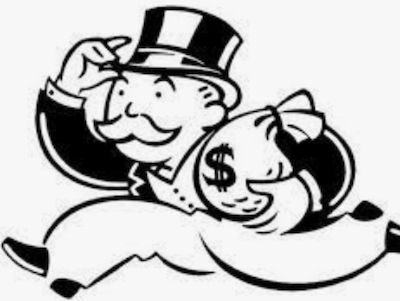A few days ago, my daughter and I carried out her wild idea of re-creating the Last Dinner on the Titanic. It was a daft way of celebrating our own rescue from another sinking passenger ship exactly 41 years ago.
She made cocktails, an elaborate appetizer, and an extravagant dessert. I did salad and meat, both of us following the recipes used on the Titanic. We had to assemble truffles, paté de foie gras, filet mignons, shrimp, saffron, asparagus, artichoke hearts, plus vast quantities of eggs, cream, butter and of booze—champagne, Chartreuse, Madeira, red wine, and cognac.
Hours of work later, we had four of the eleven courses that were served to the first-class passengers on that fateful night that some of them did not survive.
The meal was the epitome of conspicuous consumption, of wealth-flaunting, and of calories-be-damned, full speed ahead. It’s a wonder they didn’t die in the dining room, before the ship hit the iceberg.
Below decks, in steerage, the menu included gruel and boiled potatoes. Gruel. On the menu. And so little room in the lifeboats that three quarters of the steerage passengers drowned.
That whole cooking experience had me looking at the chasm between the rich and everybody else in the US now and seeing a match to that earlier era’s excesses of the wealthy, and its disregard for people who weren’t rich enough to be up there in that posh dining room, eating truffles.
There are a few outspoken politicians today who talk about income and wealth inequality in this country, but for most of them, it seems to have become the new third rail.
And in the public at large, there are vicious battles over mask-wearing, immigration, and abortion, but not about inequality—despite the fact that that imbalance fuels so many other problems that threaten the well-being and stability of the republic—and impact all our lives.
Yes, race plays an important role in the current tensions ripping this country apart but race and inequality are intertwined.
Income and wealth inequality pretty much determine where people live and how they live. Redlining may be illegal but that hasn’t stopped bankers and local zoning boards from creating income ghettos in our cities and suburbs.
The non-college working class, many of them people of color, can spend hours on public transport getting to jobs where a third of what they earn might go for child care, if they can find it.
COVID-19 has made it clearer than ever that healthcare for the rich and for everybody else are not the same. Poorer people live further from healthcare facilities than the better off. It’s harder for them to get tests and vaccines.
Since so many lower-paying jobs are in service, they can’t be done from home. Service workers must be Out There in environments which often are not safe, delivering packages, driving busses, waiting tables, cleaning houses,.. all the while hoping not to be flattened by Covid.
In the past, people could move up the economic ladder in this country, making the gap between their families and the wealthy way smaller.
Education has always been a way up in the United States but now, having a good public school available to your kids depends on living in a neighborhood with a tax base high enough to support good schools. That’s not where you live if you can’t afford it.
In the lifetimes of many people, including myself, college was affordable. You could work evenings, weekends, summers, and get yourself to a degree. With no loans to pay off for the rest of your life.
Now, your chances of studying your way up and out of poverty and into the middle class have dropped through the floor. Public schools may not be good enough to get you through the entrance exams, and the fees for tuition, board and books have gone sky-high.
It’s gruel for you, mate. And that locked-in-place, that no-way-to-move-up trap, is where way too many Americans are stuck now, looking for someone to blame, somewhere to vent their frustration and rage.
And they helped elect a populist demagogue to lead them in 2016 because he seemed to commiserate with their sense of loss of worth and status. Trump plowed a soil grown rich with anger and resentment.
Do you see ways to close the gap? To ease the tensions created by gross income and wealth disparities? To make the US once more the Land of Opportunity for all our citizens?
I’m putting my ideas together for the next Living Room Talk, and I’d love to know yours. See you next week.

